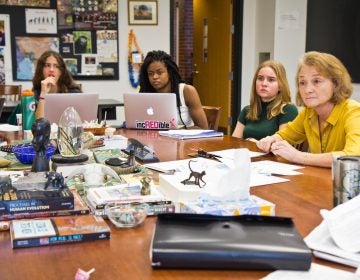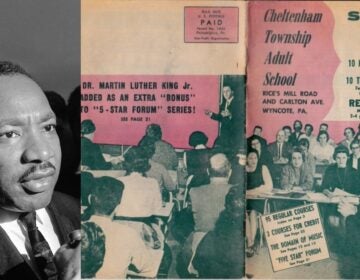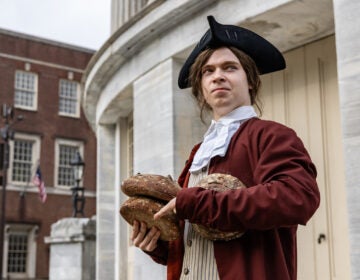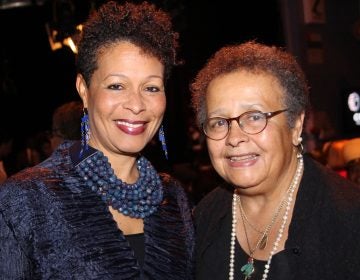‘Mr. DuBois’ uses magic to weave a history of Black Philadelphia
An online staged reading of “Mr. DuBois: a Myth” brings 19th-century activism to life.
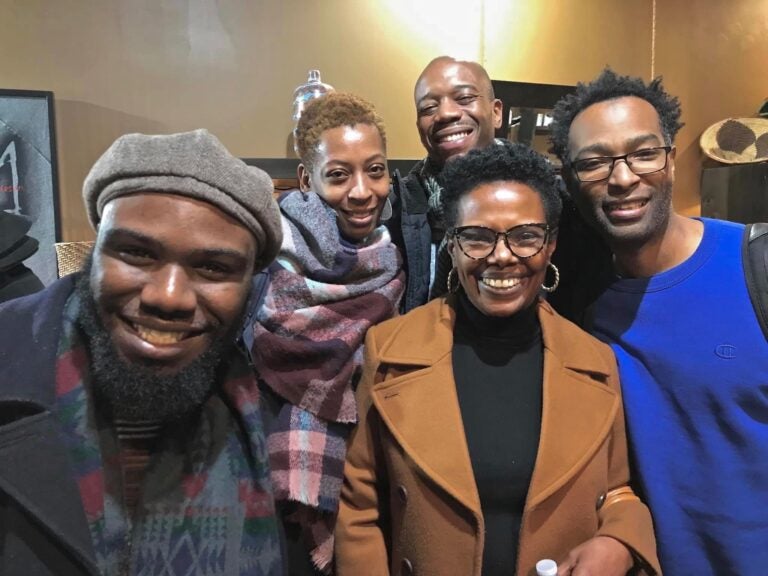
Momo St. Clair (left) and the cast of 'Mr. DuBois: A Myth' (from left) Niya Colbert, Eric Carter, Nancy Gilliam and Richard Bradford, prepare for a dramatic reading of the play on Facebook Live. (Courtesy of Momo St. Clair)
W.E.B. DuBois is trapped in a hole.
The famed African American civil rights activist, sociologist, and writer whose life straddled the 19th and 20th centuries is the subject of a new play, “Mr. DuBois, a Myth.” It uses supernatural elements to tell its story.
“He’s in an actual hole, but it’s also a hole that is symbolic,” said playwright Momo St. Clair. “It’s symbolic of Black psyche, the mind, and memory.”
DuBois made his first significant mark as an intellectual with the publication of “The Philadelphia Negro” in 1899, a survey of African Americans in what was then the city’s 7th ward (roughly encompassing Bella Vista and Graduate Hospital). At the time, it was home to one of the largest urban Black populations in any American city.
“The survey is what gets him into the hole,” said St. Clair. “The play explores the nuances of African American life at the time. There were more women than men, for example, and limited options for employment. Think about Philadelphia in 1896 … how are these people who have come to the city, how are they living in this post-Emancipation world?”
To get out of the hole, DuBois must rely on history, ghosts (an assassinated Octavius Catto has a cameo) and the many residents of the 7th Ward community he surveyed.
“Mr. DuBois” will be streamed online as a dramatic reading tonight, via Facebook Live. The 90-minute play, with 15 characters, will be performed by seven actors without staging or costumes.
Magic is something St. Clair moves inside of easily. He grew up in a rural part of Jamaica in St. Ann Parish, where he says magic was part of everyday life. He moved to the U.S. when he was 14.
“Africanism and Christianity existed together in this environment,” he said. “I grew up in a world where people come back from the dead to tell you secrets. I grew up with a lot of possibilities, a sense of the fantastical co-existing with the reality of normal life.”
St. Clair moved to Philadelphia three years ago and picked up DuBois’ groundbreaking book to acclimate himself to his new city. He also got a job teaching third graders, so he spends a lot of time reading young adult novels where the supernatural is commonplace.
He says “Mr. DuBois” draws from YA literature, but contains adult language.
The online performance is presented by the Free Library of Philadelphia and the Frances Project, which advances a public awareness of the 19th century African American poet and activist Frances Harper. Harper will soon be part of a permanent memorial sculpture at the state capital building in Harrisburg.
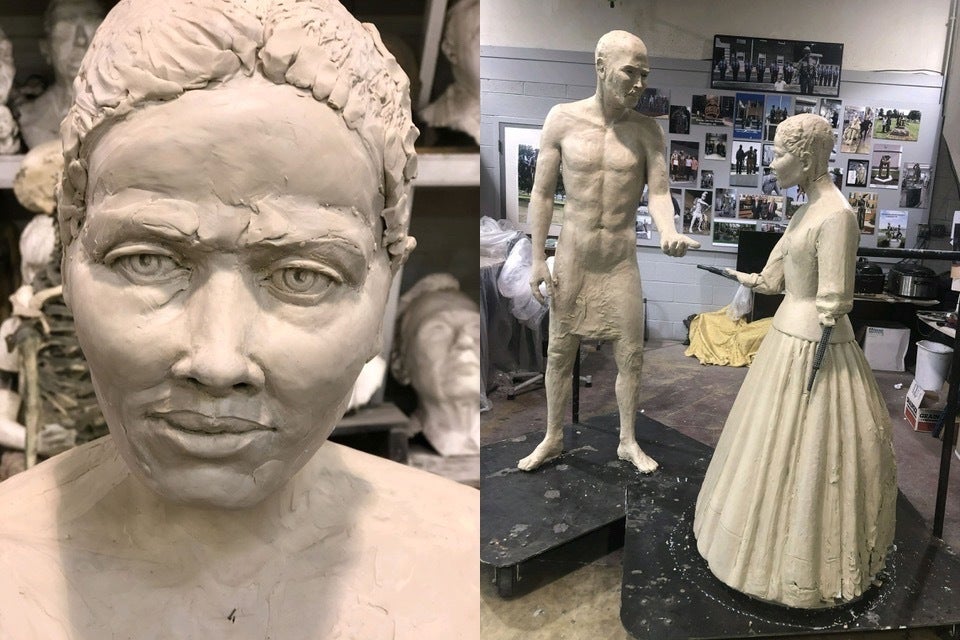
The Frances Project has spent about a year programming events building to the dedication of the memorial sculpture (originally scheduled for this summer), leveraging the historic importance of the year 2020: the 150 anniversary of the 15th Amendment giving Black men the right to vote, the 100 anniversary of the 19th Amendment giving women the right to vote, and a key presidential election.
Frances Project curator Nathaniel Popkin originally programmed this play about W.E.B. DuBois as a way to broaden the scope of Black thought as a network of activism in the late 19th century
He could not have anticipated a year ago that 2020 would also see a global social protest movement in the name of Black Lives Matter.
“The actions, the words, the scenes, the history called up in Momo’s play is like the air we are breathing right now,” said Popkin. “I feel like we’re all trapped in the mythical hole, because we have not been able to figure out how to talk about the singular injustice of racism in America.
The play was originally supposed to be performed for an audience on the steps of the Free Library’s main branch in Center City. The COVID-19 pandemic quashed that idea. Popkin hopes to be able to present the play in a more dramaturgical way in the future. St. Clair is eyeballing Black History Month 2021 as a possible time.

Show your support for local public media
WHYY is your source for fact-based, in-depth journalism and information. As a nonprofit organization, we rely on financial support from readers like you. Please give today.



